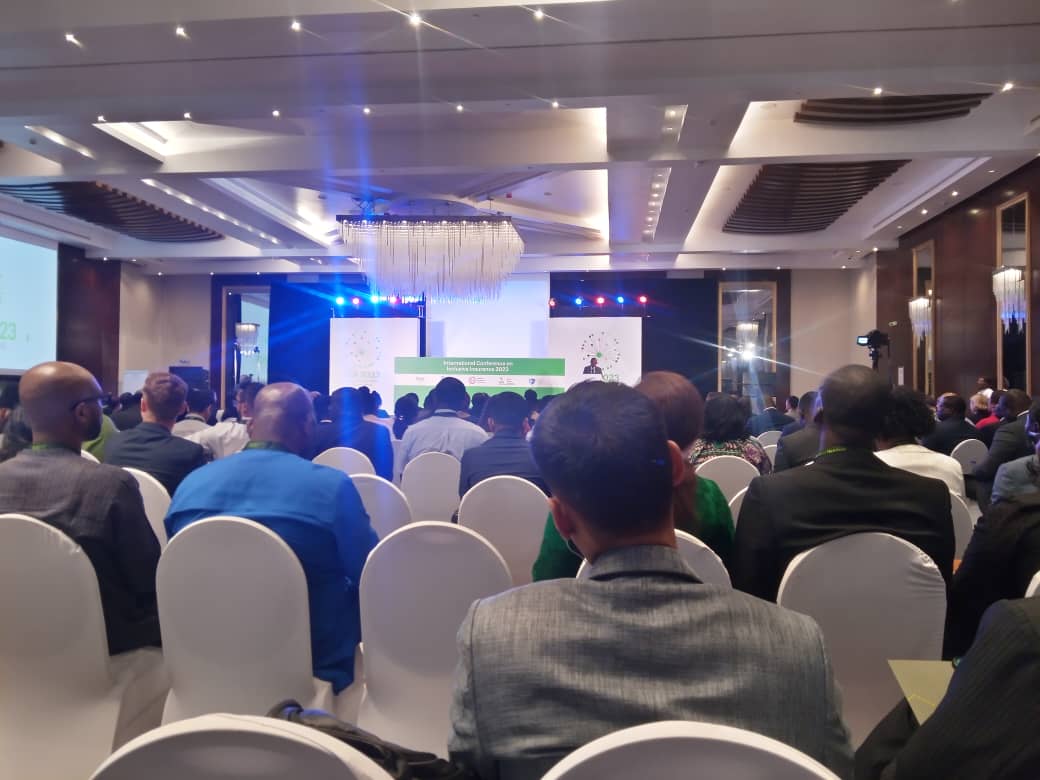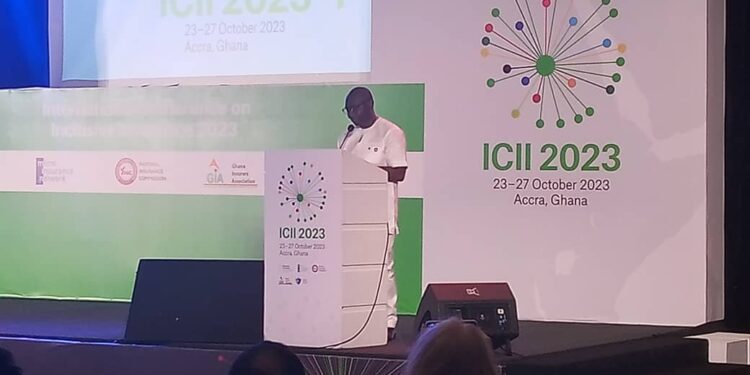Ghana requires $12.2bn to implement Climate Change mitigation and adaptation strategies – Finance Minister
- Advertisement -
Ghana needs approximately $12.2bn to fully address its climate change issues and meet costs associated with the implementation of its climate change mitigation and adaptation strategies. This is according to the Finance Minister, Ken Ofori-Atta.
According to him, of the $12.2bn financing needed, some $4.1bn needs to be generated internally.
- Advertisement -
Making the assertion at the 19th International Conference on Inclusive Insurance (ICII), on Tuesday, October 24, 2023, the Minister noted that climate change impacts have adversely affected the country’s poor.
- Advertisement -

He therefore cited the critical need for insurance protection for the country’s poor against climate change impacts and other disasters, particularly through inclusive insurance.
The Minister noted that the Government and the insurance industry must collaborate on finding ways to ensure that Ghanaians particularly those in the low-income brackets are protected through inclusive insurance.
“We need to ensure that insurance particularly inclusive insurance is integrated into all that we do. Since 2017 our policy approach has been to provide an environment that ensures that people are protected particularly the poor and the National Financial Inclusion Strategy is an example of the Government’s commitment to financial inclusion for the poor.
“Insurance will continue to play a critical role in the socioeconomic growth of the country and it serves as the umbrella that protects the poor from crisis and disasters that occur,” he remarked.

- Advertisement -
World Bank’s IFC commits to funding Ghana’s Climate Change initiatives
Meanwhile, Ghana has successfully secured crucial financing support for its climate adaptation and mitigation initiatives.
This remarkable achievement comes as a result of the World Bank’s International Finance Corporation (IFC) pledging financial backing to bolster Ghana’s multifaceted efforts in combatting climate change, with a profound focus on fostering sustainable economic growth and the creation of employment opportunities.
The Finance Minister in an earlier interview noted that discussions with the World Bank and IFC have laid the groundwork for potential resources, including innovative financing mechanisms tailored to the unique requirements of climate mitigation and adaptation.
Ghana’s priorities are tightly aligned with addressing climate change concerns while ensuring that the stability achieved through the IMF program translates into more sustainable job opportunities for its citizens.
Minister Ofori-Atta underscored the importance of private investment and strengthening the economic system as essential components of this growth trajectory. Importantly, the climate agenda positions Ghana favorably to access resources aimed at promoting electric vehicles and solar energy, pivotal components of a more effective and sustainable growth model.
Ghana’s efforts in battling environmental challenges such as deforestation, illegal logging, unsustainable land use practices, and illegal mining, which have substantially depleted its forest cover over the years, are well-documented. The consequences of these activities are apparent in the form of bushfires, droughts, changing rainfall patterns, rising sea levels, and increased coastal water salinity.
In response, the Government has instituted a range of initiatives, including the laudable Green Ghana Day, designed to inspire tree-planting efforts and forest recovery. Complementing these actions is the National Climate Change Policy, a strategic blueprint guiding various activities and responses for effective adaptation, mitigation, and social development.
The policy has identified five priority areas, encompassing agriculture and food security, disaster preparedness and response, natural resource management, equitable social development, as well as energy, industrial, and infrastructural development.
All these initiatives form a holistic approach aimed at rendering Ghana more resilient to the adverse impacts of climate change while driving sustainable development through equitable, low-carbon growth.
Source: Norvanreports
- Advertisement -



